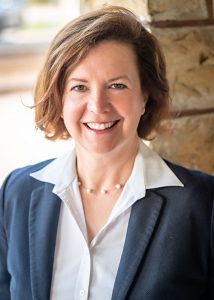
Jenni Dressler is a 2022 graduate from the MA in Pastoral Counseling program at the Institute of Pastoral Studies. She took the time to share some of her thoughts about her experiences in the program and what the future holds. In her own words, she shares her journey with us:
“From childhood, I somehow knew that I was going to law school, where I would learn a trade. Therefore, for my bachelor’s degree, I undertook the study of philosophy and literature to discover what my 17-year-old self referred to as “the meaning of life”, fully embracing the pursuit of wisdom through critical thought. The works of William Shakespeare and Albert Camus particularly influenced me, and nearly 40 years later, I continue to study Hamlet. Like my life, the story opens with the eternal question, “Who’s there?” and continues through all five acts (or, in my case, five decades) attempting to answer it.
I have been a devoted student of A Course in Miracles (the “Course”) since 2003. Through the Course I have experienced a profoundly deepening spirituality, peace, and love of God, as well as love of my neighbors. As a result of my study, I have come to understand that internal peace is the ne plus ultra of spiritual practice. As Tolstoy wryly noted, everyone thinks of changing the world, but no one thinks of changing himself. If a person is peaceful, he has no need to make an other of his brother. Likewise, Matthew 22:34-40 teaches us that the most important commandment – and therefore our most important work – is relational: we must love God and our neighbor with everything we’ve got. However, we cannot truly love another if we are not first at peace with ourselves.”
The drawback to the study of secular philosophy, as well as the practice of law, is that neither embraces spirituality. In the years following my discovery of A Course in Miracles, I continued to stumble upon opportunities to listen to the struggles of others, offering support and creating a space in which they could find their own answers. Despite my grand plan to live a quiet retirement after I left the practice of law in 2017, I finally had to admit to myself that I was being called to this ministry. I then spent months looking at counseling psychology programs that would provide the credentials I needed to offer professional therapy, but none of the programs felt right. Finally, one day I stumbled upon a newsletter from JourneyCare, the hospice for which I volunteer. The newsletter contained an interview with Joel Bregman, a JourneyCare chaplain, in which he revealed that he had come to pastoral counseling from corporate America in his 50s (like me), and he had pursued his degree at Loyola’s Institute of Pastoral Studies. I opened the IPS website, and immediately felt at home. As I discovered when making the intellectual transition from secular philosophy to A Course in Miracles, IPS, like the Course, had something that all the other programs lacked: IPS had God. My spiritual and intellectual paths had finally converged.
The blessing of the Spirit’s prompting led Jenni to the IPS and we were honored to have her study with us. I asked her, what, if anything, from her academic experience would she would lift up as a valuable tool or experience that you took away from her degree?
JD: “Although Loyola University Chicago is a Catholic, Jesuit institution, I appreciated the support I received from faculty to explore how A Course in Miracles, my faith practice, integrates into my pastoral vision, identity, and practice. In addition, I had exceptional experiences with the people and program. Specifically, I worked and continue to work closely with Michael Bland, who has been my professor, mentor, clinical supervisor, and role model. He has taught me to emphasize God’s gifts and grace in the people I meet. His abiding kindness and goodness are both a source of inspiration and a paragon of pastoral care to which I aspire.
Professor Bill Schmidt and Professor Deb Watson provided unfailing leadership, support, and patience. They helped forge my pastoral counseling identity, and their influence will extend to everyone who comes to me for care.
As I mentioned above, Loyola University Chicago and the Institute of Pastoral Studies offer a unique program that combines a traditional counseling curriculum with theological attention to the important healing work of Spirit.
I was blessed with steadfast, principled, and inspiring companions on this journey in my pastoral counseling cohort: Marguerite Galvez, Greg McPhee, Charles Nuwagaba, Tara Parker, Norma Pocasangre Umanzor, Kathie Smith, Imad Syryany, and Uzochukwu Ikechi Ugo.
I also would like to raise up The Claret Center, the parish of Saint Mary of the Lake, their respective staffs, and my supervision colleagues for providing an unparalleled internship opportunity. The depth and breadth of my experience afforded by these institutions and their people was remarkable.
Jenni is doing amazing things professionally. I asked her to share some details and she was happy to share.
JD: I am currently, a psychotherapy resident at the Claret Center, a non-profit agency in Chicago that emphasizes the integration of spirituality and psychology. In additional to psychotherapy for individuals, I have offered psycho-educational programs and group therapy at Saint Mary of the Lake, a Catholic parish in the Buena Park/Uptown neighborhood. I counsel a wide variety of clientele in various sociocultural contexts and all along the spectrums from vulnerable to powerful and underprivileged to privileged. These services span the life cycle and include psychotherapy for children, adolescents, adults, couples, and families. I serve clients ranging in age from 11 to 70+, and I treat a wide variety of conditions and diagnoses including grief, PTSD, bipolar disorder, depression, anxiety, conduct disorder, PMDD, attachment issues, and borderline tendencies. My clients, many of whom are immigrants, are of African, Asian, European, Latinx, and Native American origin or descent.
JD: In addition to my master’s degree from Loyola, I have completed Level 1 training in Internal Family Systems. I will complete Level 2 training and become a certified IFS therapist by the end of 2023. I am currently training in EMDR (Eye Movement Desensitization and Reprocessing), a mental health treatment technique that facilitates the processing of traumatic memories and healing from the symptoms and emotional distress that are the result of disturbing life experiences. I also hold a graduate certificate in Psychedelic-assisted Therapy and Research from the California Institute of Integral Studies. In October of 2022, I presented, “Psychedelic-assisted therapy: Integration vs. harm reduction” at the American Counseling Association 2022 national Virtual Conference Experience, leveraging both my psychology and legal expertise.
I have developed specific interests in counseling applications for people with terminal diagnoses, as well as the people who accompany them; psychedelic-assisted therapy and research; and spirituality in counseling, particularly as it relates to unitive experiences. I hope to focus my practice on psychedelic-assisted therapy and research once psychedelics are legalized. Interestingly, psychedelic-assisted therapy became legal in Oregon in 2023. I asked her how her IPS experience informs her professional work and she said that her IPS experience informs every aspect of her professional work.
As a parting question – I asked her if there was anything she would like to share with future IPS students or grads that would be helpful advice for their journey?
JD: What I found particularly interesting about my IPS MAPC cohort was their age: all were mid-career or second-career professionals. It’s never too late to take advantage of the invaluable skills afforded by an IPS education. After all, Doogie Howser may have been a young genius, but no one went to him for wisdom.
Jenni Dressler, MA, is a psychotherapy resident at the Claret Center, a non-profit agency in Chicago that emphasizes the integration of spirituality and psychology. She also offers psycho-educational programs and group therapy at Saint Mary of the Lake, a Catholic parish in the Buena Park/Uptown neighborhood.
For more information about the IPS MA Counseling Program, please contact Julie Garcia, Student Coordinator, at jgarica33@luc.edu
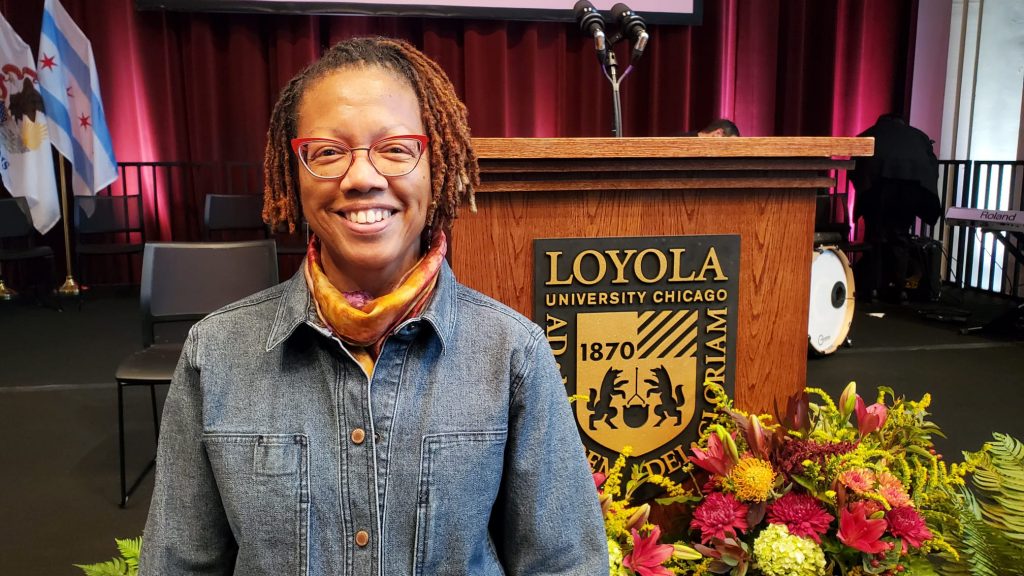
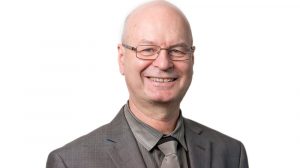 The Institute of Pastoral Studies at Loyola University Chicago has evolved over its nearly sixty year life. Dr. William (Bill) Schmidt has accompanied the Institute for the better part of the second half of its existence. During his tenure with IPS, he has seen changes in university structures including a building out of the Institute of Pastoral Studies from a summer program to the robust offerings of degree programs it has today. His contribution to those offerings emerged as a contributor to the spirituality program during his time as the Graduate Program Director. The lens through which Dr. Schmidt has experienced the IPS is Pastoral Counseling and Chaplaincy. He talked about the purpose of IPS as pastoral. He was open about the ambiguity of the term pastoral in a post-modern world. His response to how a pastoral organization can persist in an ever changing world, was that the IPS is engaged in Jesuit-driven pastoral accompaniment. The pastoral term encompasses the journey and the complications that arise from it.
The Institute of Pastoral Studies at Loyola University Chicago has evolved over its nearly sixty year life. Dr. William (Bill) Schmidt has accompanied the Institute for the better part of the second half of its existence. During his tenure with IPS, he has seen changes in university structures including a building out of the Institute of Pastoral Studies from a summer program to the robust offerings of degree programs it has today. His contribution to those offerings emerged as a contributor to the spirituality program during his time as the Graduate Program Director. The lens through which Dr. Schmidt has experienced the IPS is Pastoral Counseling and Chaplaincy. He talked about the purpose of IPS as pastoral. He was open about the ambiguity of the term pastoral in a post-modern world. His response to how a pastoral organization can persist in an ever changing world, was that the IPS is engaged in Jesuit-driven pastoral accompaniment. The pastoral term encompasses the journey and the complications that arise from it.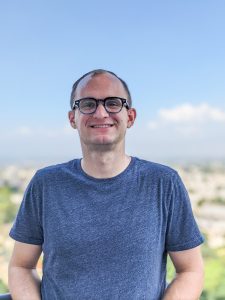
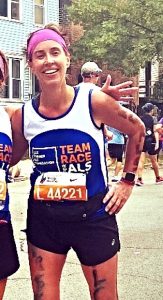
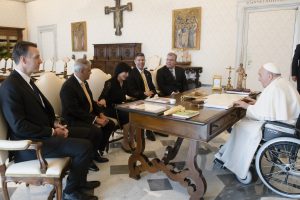
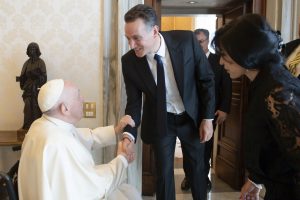
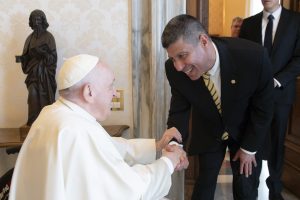

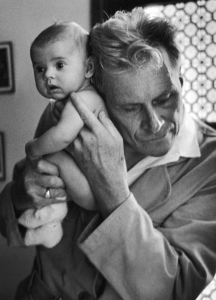
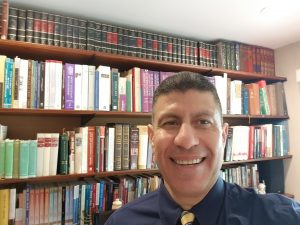
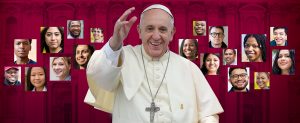
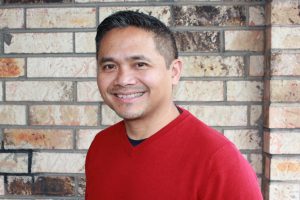 Lolan is a light in this world.
Lolan is a light in this world.